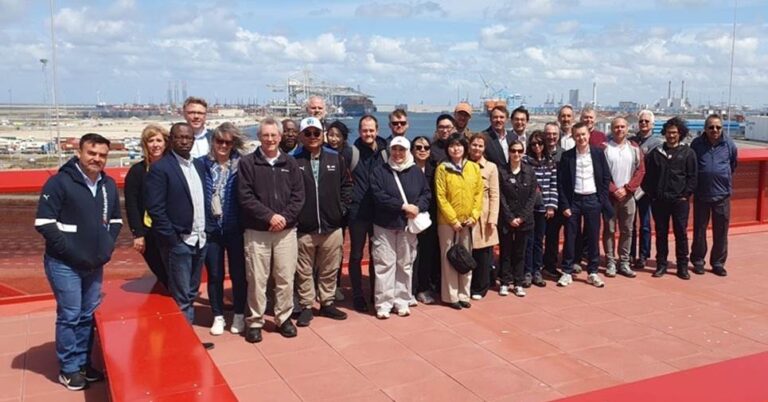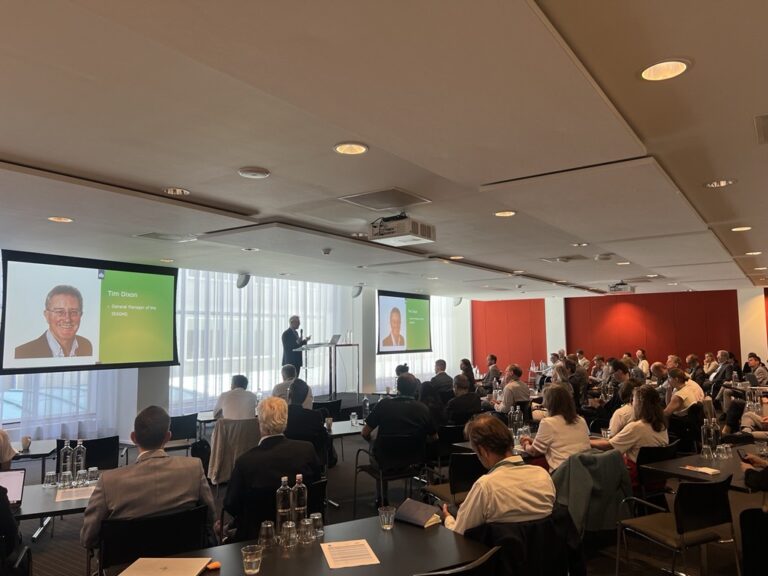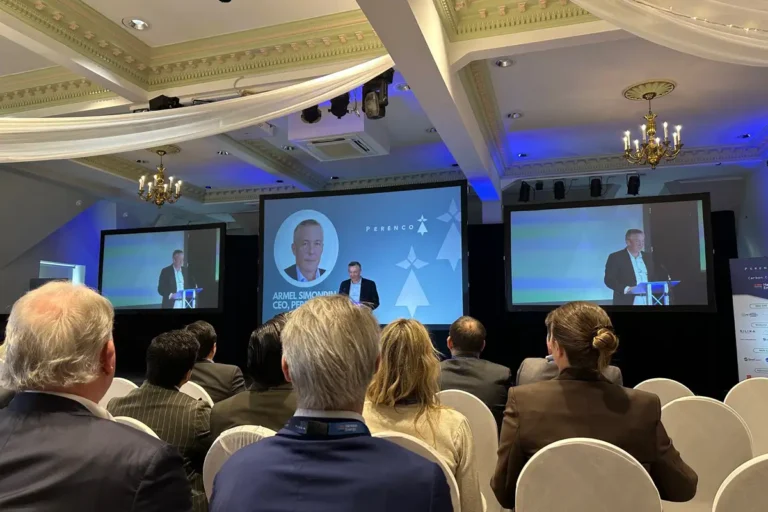
Reflections on IEAGHG’s 8th CCS Cost Network Workshop
13 March 2025
IEAGHG’s 8th CCS Cost Network Workshop, hosted by Bechtel at their Energy Headquarters in Houston, the so-called Energy Capital of the World.
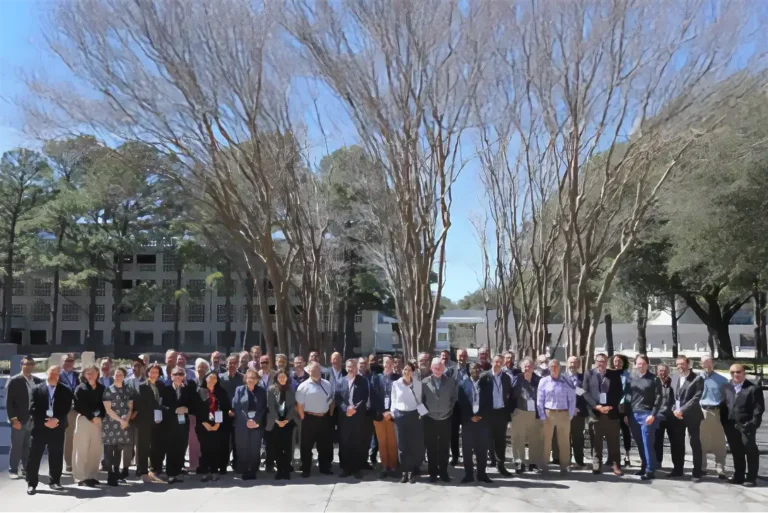
IEAGHG’s 8th CCS Cost Network Workshop, hosted by Bechtel at their Energy Headquarters in Houston, the so-called Energy Capital of the World, took place on March 5–6, 2025. This invitation-only, in-person gathering convened around 50 leading experts from industry and academia, fostering a highly interactive forum for in-depth discussions on advancing real-world cost estimation across the carbon capture and storage (CCS) value chain.
Day 1 opened with welcoming remarks from Bechtel’s Bill Elliot, Operations Manager, ET, and George Whittaker, CCUS Operations Manager, setting the stage for a series of technical sessions.
Technical Sessions
The first session featured insights from the US Department of Energy (DOE)-funded Point Source Capture Front-End Engineering Design (FEED) studies. Sally Homsy (NETL) highlighted the impact of host plant operational mode and capacity factor on the business case for CCS. As renewable penetration increases, fossil-powered plant capacity factors may decline, affecting overall project economics. However, future incentives and policy mechanisms could support CCS-equipped plants, leading to preferential dispatching of clean power and strengthening the financial viability of these projects. Brice Freeman (MTR) presented on the Commercial-Scale FEED Study for MTR’s Membrane CO₂ Capture Process, highlighting DOE’s support from early TRL lab-scale development through multiple field trials. This funding pathway culminated in the Large Pilot project at the Wyoming ITC and has now progressed to a full-scale, full-chain demonstration, marking a significant milestone in advancing membrane-based CO₂ capture technology.
In the second session, Transport Costs, Colin Laing (Xodus) highlighted that the cost of newbuild, new-route CO₂ pipelines is heavily influenced by location-specific factors. Colin emphasised that firm cost estimates require a clear understanding of these factors, as considerations such as road and river crossings, conflicts with existing infrastructure, and routing options all play a significant role in determining overall costs. Further, he highlighted potential strategies to mitigate project cost risks, suggesting that a gated development process could help reduce uncertainty and improve cost predictability in CO₂ transport projects. Andrew Bean (EPRI) presented findings from the U.S. Eastern Seaboard Transport and Storage Study, summarising CO₂ transport costs and exploring how CCS infrastructure could be deployed to support regional decarbonisation. The study utilised four modelling tools to estimate the integrated costs of capture, transport, and storage in the region: CO₂NCORD for capture costs, CostMAPPRO for pipeline and shipping costs, SCO₂TPRO for storage cost and capacity analysis, and SimCCSPRO for overall integrated costs. Andrew’s presentation highlighted high-level CCS deployment costs along the Eastern Seaboard, highlighting key cost drivers that could inform future infrastructure planning.
Session 3: Realistic Financing Assumptions featured Jeff Brown (Stanford) and Alexander Shelby (Barclays), who explored the financing challenges of capital-intensive CCS projects. They highlighted how perceived risks elevate capital costs and examined how government policies, such as tax credits, could mitigate these barriers, offering a critical lens on CCS economics. Jeff delivered a passionate and well-articulated presentation on ‘What Factors Drive Finance Costs?’, providing a clear breakdown of the key influences shaping CCS investment decisions and the financial hurdles that need to be addressed for wider deployment.
Session 4: Bases for CCS Costs Internationally featured presentations by Geoff Bongers (Gamma Energy Technology) and Shannon Timmons (CCS Knowledge Centre). Geoff compared decarbonisation pathways for Australia and Japan, highlighting how regional factors shape cost-effective strategies. While both regions experience rising costs as decarbonisation approaches 100%, their optimal technology mix differs based on geography. Shannon shared key learnings from Emissions Reduction Alberta’s Carbon Capture Kickstart (CCK) Program, emphasising the importance of Levelised Cost of Capture (LCOC) and Levelised Cost of Avoidance (LCOA) as critical metrics in determining project feasibility. To support broader adoption, a dedicated LCOC and LCOA calculator has been developed and will be made publicly available, enabling stakeholders to conduct their own assessments and enhance CCS investment decision-making.
The second day opened with Session 5: Storage Cost Reduction. Candice Paton (Enhance Energy) presented on the development of CCS hubs in Alberta, like Enhance’s Origins project, discussing the key drivers that potentially impact storage costs and emphasising the importance of understanding the limitations and assumptions made in the evaluation process. She highlighted the need for shared risk and liability between emitters and storage providers, stressing the importance of clear agreements and a thorough understanding of risks in CO₂ storage projects. Wes Peck (EERC) provided insights into CCUS well drilling costs in North Dakota, highlighting key cost drivers of CCS wells under different scenarios. He discussed how costs vary depending on whether a project targets a single formation or multiple formations of interest, as well as the impact of depth on overall expenses. Another critical cost consideration was the choice between transitioning a stratigraphic test well into a Class VI injection/monitoring well or plugging and abandoning (P&A) the stratigraphic test well, each with distinct economic implications for project feasibility. Ole Engels (Heidelberg Materials) discussed CCS costs based on Heidelberg’s experience, highlighting its portfolio of CCS and CCU projects, some of which are end-to-end. He emphasised how storage properties can drive significant economic opportunities, further exploring the relationship between storage injectivity and capacity.
Break-out sessions
Following the five technical sessions, the second day featured three breakout sessions:
Breakout Session 1
International CCS Drivers was moderated by Hugh Barlow (GCCSI), who set the stage with a well-thought-out presentation, posing key questions on international CCS drivers, including what has been working well in different regions, what challenges persist, how countries can create long-term certainty, and the role of the private sector in driving CCS deployment. This led to an engaging and immersive discussion on regional CCS challenges and opportunities.
Breakout Session 2
Moving towards 100% capture – is it possible and is it worth it? was moderated by Jon Gibbins (University of Sheffield), with Ryan Cownden (University of Sheffield) and Simon Rousanally (SINTEF) sharing insights on the viability and value of achieving 100% CO₂ capture. Their presentations sought to address if 100% capture is worth it? sparking an engaging discussion on whether fully capturing fossil CO₂ is a realistic goal considering the cost challenges associated with reaching 100% capture concerning the lifecycle economics ofa plant, weighing the trade-offs between technical feasibility and economic viability.
Breakout Session 3
Impact of Plant Integration, was moderated by Abhoyjit Bhown (EPRI), who explored different methods of supplying thermal energy for solvent regeneration in CO₂ capture. In the context of plant integration, Abhoyjit delved deeper into environmental considerations crucial for the successful deployment of CCS, highlighting key factors such as air quality, water usage, land impact, and public engagement. These broad themes fostered an in-depth discussion, emphasising the need for a holistic approach to CCS implementation that balances technical feasibility with environmental and societal concerns.
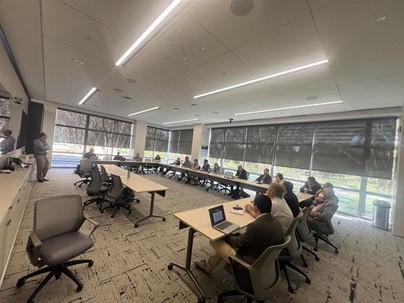
Closing Remarks
The 8th CCS Cost Network Workshop highlighted the complexity of CCS cost estimation, from capturing site-specific nuances to grappling with transport realities, storage challenges, and financing risks. The workshop closed with Bill Elliot (Bechtel) offering concluding remarks and requesting topics from delegates that might be considered for inclusion in the next CCS Cost Workshop.
Keith Burnard (IEAGHG) followed by thanking Bechtel for their first-rate hosting of the workshop, thanking the Workshop Steering Committee for designing the agenda and inviting speakers, thanking Bechtel’s Yvonne Way and IEAGHG’s Abdul’Aziz Aliyu for their commendable organisational skills and, finally, thanking all speakers, note-takers and participants for their valuable contributions in making the workshop such a great success.
The proceedings of IEAGHG’s 8th CCS Cost Network Workshop will be available and published on the IEAGHG website in the Summer of 2025.
Other articles you might be interested in
Get the latest CCS news and insights
Get essential news and updates from the CCS sector and the IEAGHG by email.
Can't find what you are looking for?
Whatever you would like to know, our dedicated team of experts is here to help you. Just drop us an email and we will get back to you as soon as we can.
Contact Us Now

